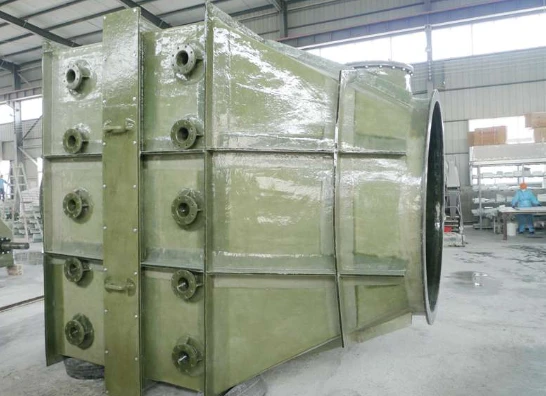
-
 Afrikaans
Afrikaans -
 Albanian
Albanian -
 Amharic
Amharic -
 Arabic
Arabic -
 Armenian
Armenian -
 Azerbaijani
Azerbaijani -
 Basque
Basque -
 Belarusian
Belarusian -
 Bengali
Bengali -
 Bosnian
Bosnian -
 Bulgarian
Bulgarian -
 Catalan
Catalan -
 Cebuano
Cebuano -
 China
China -
 China (Taiwan)
China (Taiwan) -
 Corsican
Corsican -
 Croatian
Croatian -
 Czech
Czech -
 Danish
Danish -
 Dutch
Dutch -
 English
English -
 Esperanto
Esperanto -
 Estonian
Estonian -
 Finnish
Finnish -
 French
French -
 Frisian
Frisian -
 Galician
Galician -
 Georgian
Georgian -
 German
German -
 Greek
Greek -
 Gujarati
Gujarati -
 Haitian Creole
Haitian Creole -
 hausa
hausa -
 hawaiian
hawaiian -
 Hebrew
Hebrew -
 Hindi
Hindi -
 Miao
Miao -
 Hungarian
Hungarian -
 Icelandic
Icelandic -
 igbo
igbo -
 Indonesian
Indonesian -
 irish
irish -
 Italian
Italian -
 Japanese
Japanese -
 Javanese
Javanese -
 Kannada
Kannada -
 kazakh
kazakh -
 Khmer
Khmer -
 Rwandese
Rwandese -
 Korean
Korean -
 Kurdish
Kurdish -
 Kyrgyz
Kyrgyz -
 Lao
Lao -
 Latin
Latin -
 Latvian
Latvian -
 Lithuanian
Lithuanian -
 Luxembourgish
Luxembourgish -
 Macedonian
Macedonian -
 Malgashi
Malgashi -
 Malay
Malay -
 Malayalam
Malayalam -
 Maltese
Maltese -
 Maori
Maori -
 Marathi
Marathi -
 Mongolian
Mongolian -
 Myanmar
Myanmar -
 Nepali
Nepali -
 Norwegian
Norwegian -
 Norwegian
Norwegian -
 Occitan
Occitan -
 Pashto
Pashto -
 Persian
Persian -
 Polish
Polish -
 Portuguese
Portuguese -
 Punjabi
Punjabi -
 Romanian
Romanian -
 Russian
Russian -
 Samoan
Samoan -
 Scottish Gaelic
Scottish Gaelic -
 Serbian
Serbian -
 Sesotho
Sesotho -
 Shona
Shona -
 Sindhi
Sindhi -
 Sinhala
Sinhala -
 Slovak
Slovak -
 Slovenian
Slovenian -
 Somali
Somali -
 Spanish
Spanish -
 Sundanese
Sundanese -
 Swahili
Swahili -
 Swedish
Swedish -
 Tagalog
Tagalog -
 Tajik
Tajik -
 Tamil
Tamil -
 Tatar
Tatar -
 Telugu
Telugu -
 Thai
Thai -
 Turkish
Turkish -
 Turkmen
Turkmen -
 Ukrainian
Ukrainian -
 Urdu
Urdu -
 Uighur
Uighur -
 Uzbek
Uzbek -
 Vietnamese
Vietnamese -
 Welsh
Welsh -
 Bantu
Bantu -
 Yiddish
Yiddish -
 Yoruba
Yoruba -
 Zulu
Zulu
Jan . 09, 2025 12:00
Back to list
frp pipe
FRP pipes, or Fiber Reinforced Plastic pipes, have emerged as a significant advancement in the piping industry, renowned for their high performance and durability across various applications. This composite material, combining a polymer matrix with reinforced fibers, offers an exceptional balance of strength, corrosion resistance, and lightweight properties, making it an ideal choice for industries ranging from chemical processing to water and wastewater treatment.
In terms of expertise, manufacturers of FRP pipes leverage advanced fabrication technologies and meticulous quality control processes to ensure optimal performance. They conduct extensive testing under simulated conditions that exceed standard operational environments to ascertain that the pipes deliver consistent reliability. This commitment to quality and innovation underscores the manufacturers' expertise in producing pipes that not only meet but often exceed industry standards. The authority of FRP pipes in the market is further solidified by numerous endorsements from engineering professionals and their widespread adoption in projects demanding the utmost reliability and performance. Specialists in pipeline infrastructure often recommend FRP due to its proven track record and adaptability to a multitude of environments and applications. Trust in FRP pipes is gradually building as more industries report positive outcomes from their implementation. Long-term studies indicate their performance consistency over decades, often outlasting other materials by a considerable margin and leading to on-schedule project completions with reduced unexpected downtimes. In sum, FRP pipes represent a superior choice for modern piping needs, successfully marrying durability with versatility and ensuring that industries can rely on efficient and safe infrastructure. Whether you are replacing an aging system or installing new infrastructure, FRP pipes emerge as a future-proof, dependable solution geared for innovation and performance.


In terms of expertise, manufacturers of FRP pipes leverage advanced fabrication technologies and meticulous quality control processes to ensure optimal performance. They conduct extensive testing under simulated conditions that exceed standard operational environments to ascertain that the pipes deliver consistent reliability. This commitment to quality and innovation underscores the manufacturers' expertise in producing pipes that not only meet but often exceed industry standards. The authority of FRP pipes in the market is further solidified by numerous endorsements from engineering professionals and their widespread adoption in projects demanding the utmost reliability and performance. Specialists in pipeline infrastructure often recommend FRP due to its proven track record and adaptability to a multitude of environments and applications. Trust in FRP pipes is gradually building as more industries report positive outcomes from their implementation. Long-term studies indicate their performance consistency over decades, often outlasting other materials by a considerable margin and leading to on-schedule project completions with reduced unexpected downtimes. In sum, FRP pipes represent a superior choice for modern piping needs, successfully marrying durability with versatility and ensuring that industries can rely on efficient and safe infrastructure. Whether you are replacing an aging system or installing new infrastructure, FRP pipes emerge as a future-proof, dependable solution geared for innovation and performance.
Next:
Related Products
Latest news
-
High-Quality Fiberglass Car Bodies Durable GRP Car & Boat Body SolutionsNewsJul.08,2025
-
High-Quality Fiberglass Dual Lamination Product Manufacturer Durable FRP & GRP Dual Lamination SolutionsNewsJul.08,2025
-
Rectangular Tank with Dimensions for GRP Calculation Custom Fiberglass GRP Rectangular TanksNewsJul.07,2025
-
High-Quality Fiberglass Weir Custom FRP Weir & Fiberglass Tanks ManufacturerNewsJul.07,2025
-
CPVC FRP Pipe A Reliable Choice for Industrial Applications High Strength & Corrosion ResistanceNewsJul.07,2025
-
Fiberglass Scrubber for Effective Cleaning and Stain Removal – Superior Performance in Various ApplicationsNewsJul.06,2025









